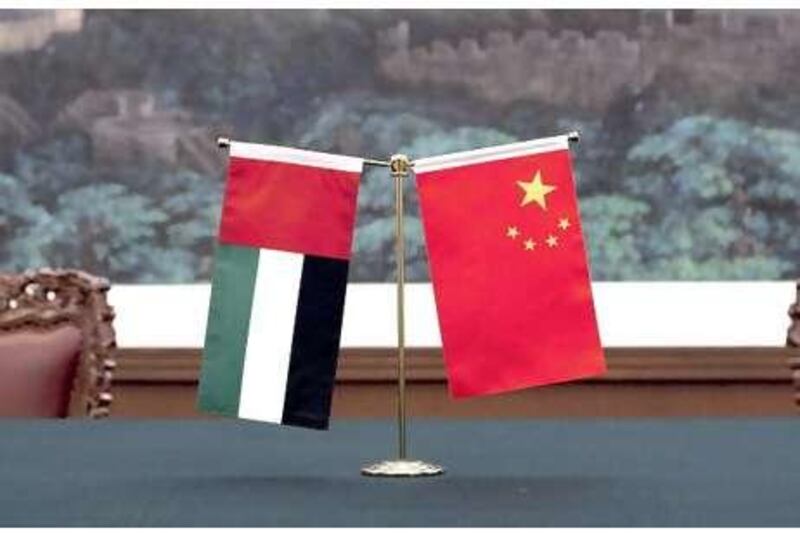Local markets are to receive a boost from Chinese investors as the country that this week became the world's second largest economy looks to diversify its foreign assets. Growing economic links between China and the Middle East are likely to result in a number of significant investments, according to analysts.
Their comments came after a major Chinese delegation visited Dubai Financial Market (DFM) this month. "This is now about more Chinese institutions giving access to UAE markets to their clients, to invest directly into the UAE economy and also attract UAE investors through international funds to reciprocate," said Mohammed Ali Yasin, the chief executive of Shuaa Securitiesin Dubai. Officials from a number of major Chinese securities firms including BOC International, Guotai Junan Securities and Haitong Securities, were among a 12-strong delegation that met DFM representatives.
"As China tries to diversify its foreign assets, it would make sense to buy a share in the oil, energy or logistics companies as they benefit from China itself. It's a proxy play on China," said Ben Simpfendorfer, the chief Asia economist for Royal Bank of Scotland. However, the relatively small size of local markets and the low trading volumes that regional exchanges have experienced this year could be an obstacle for some Chinese investors.
"There are limits on the Chinese investors that can invest abroad - the pension funds, the China Investment Corporation and the banks, which can create mutual funds that invest in certain markets, although I very much doubt they would be targeted at the Middle East," Mr Simpfendorfer said. The DFM has lost almost a fifth of its value this year, helping to keep price-to-earnings ratios much lower than in most other emerging markets.
At the start of this year, it was reported that the Hong Kong company First Eastern Investment Group was setting up a US$250 million (Dh918.2m) fund aimed at making investments in Dubai amid expectations of an economic upturn. In April 2008, the tables were turned when Dubai International Capital, the overseas investment arm of Dubai Holding, partnered with First Eastern Investment to launch a fund, China Dubai Capital, aimed at making investments in China.
Just as UAE stock exchanges have been working to increase their profile in China, so have the country's property developers, with the Dubai Pearl project among those that held events in Shanghai, Beijing, Hong Kong and other cities to drum up interest among potential investors. Bilateral trade between the UAE and China stood at $21 billion last year, a drop of $7bn from 2008's record figure of $28bn.
The apparent growing interest from Chinese investors in UAE stocks follows efforts by the DFM and the Abu Dhabi Securities Exchange to promote themselves in the world's most populous nation, with both holding roadshow events in China. Isaac Meng, an analyst at BNP Paribas in Beijing, said Chinese investments in Gulf markets were "still very tentative" but were likely to increase. "In the longer term, certainly, they will widen the net to see companies in the Gulf or emerging markets in general," he said.
The UAE's location could also benefit the country in the long term. "This is really where the strength of the UAE is apparent in what it has been trying to do to establish itself as a stopping point between East and West," Mr Yasin said. business@thenational.ae






